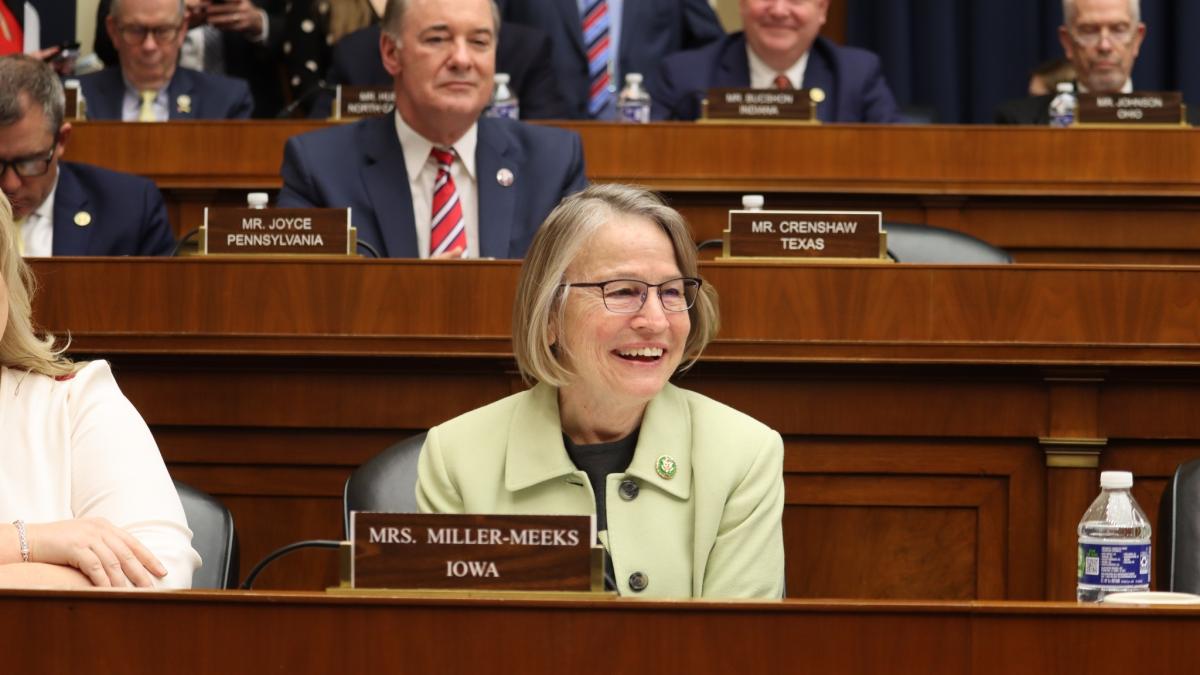Miller-Meeks’ Diagnostic Lab Testing Transparency Act Passes the House

WASHINGTON, D.C. — U.S. Representative Mariannette Miller-Meeks’ (IA-01) “Diagnostic Lab Testing Transparency Act,” legislation that was included in Section 102 of H.R. 5378, the “Lower Costs, More Transparency Act” package, passed the House. The “Diagnostic Lab Testing Transparency Act” would require diagnostic laboratories to disclose three data points for clinical diagnostic laboratory tests included on the list of shoppable services specified by the Centers for Medicare and Medicaid Services.
“I am proud that the ‘Diagnostic Lab Testing Transparency Act,’ passed the House,” said Miller-Meeks. “Currently, patients can only see the prices for labs conducted at hospitals and not the prices for diagnostic services offered by competing independent labs. The ‘Diagnostic Lab Testing Transparency Act,’ supports consumer choice by expanding a patients’ ability to shop for diagnostic tests and therefore compare prices. I am encouraged by the support of my colleagues, and I look forward to moving this legislation one step closer to becoming law.”
Read the full text of the bill here.
Background:
- The “Diagnostic Lab Testing Transparency Act” was introduced in May 2023.
- This section of the “Lower Costs, More Transparency Act” package extends certain price transparency requirements to diagnostic labs. Specifically, this section requires labs to make publicly available the cash price and publish cash prices as well as the de-identified minimum and maximum insurer-negotiated rates for clinical diagnostic laboratory tests offered by the lab that are included on the list of shoppable services specified by the Centers for Medicare and Medicaid Services (CMS).
Additional Information on the “Lower Costs, More Transparency Act” Package:
- The “Lower Costs, More Transparency Act” empowers patients and employers to shop for healthcare and make informed healthcare decisions by providing timely and accurate information about the cost of care, treatment, and services.
- The legislation lowers costs for patients and employers by requiring health insurers and pharmacy benefit managers (PBMs) to disclose negotiated drug rebates and discounts, revealing the true costs of prescription drugs.
- The legislation lowers out-of-pocket costs for seniors who receive medication at a hospital-owned outpatient facility or doctor’s office.
- The legislation helps hospitals with Disproportionate Share Hospital (DSH) payments to ensure that they can continue to provide care for low-income communities.
###
